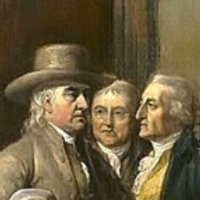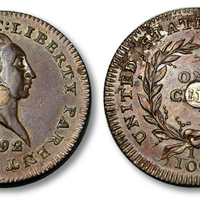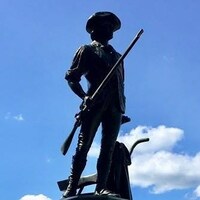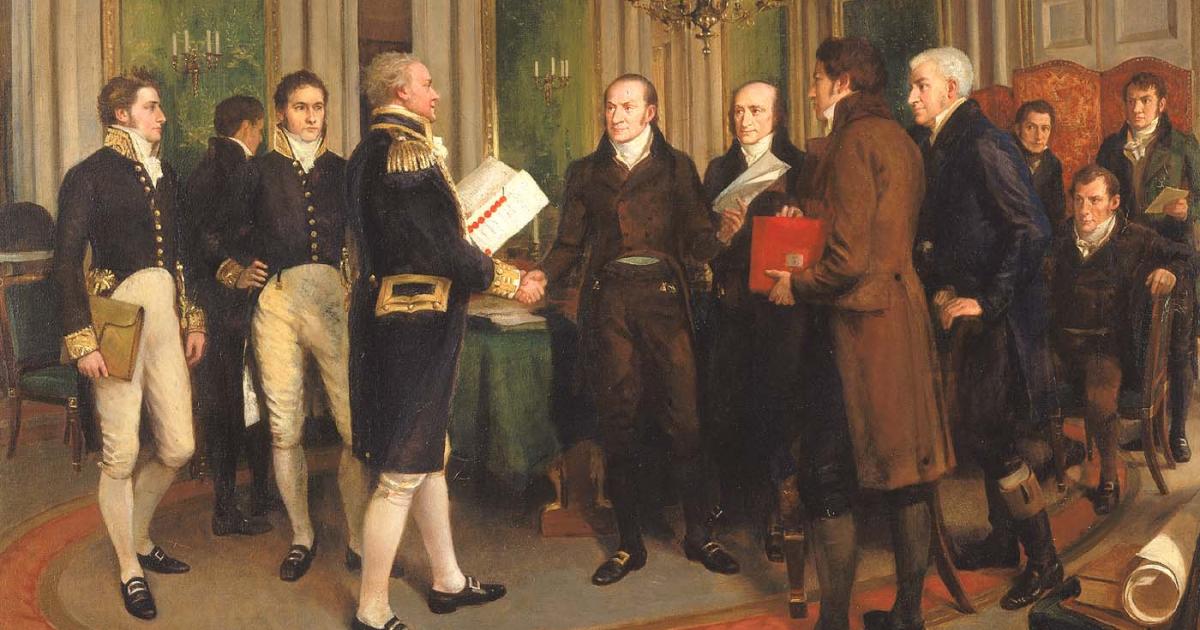
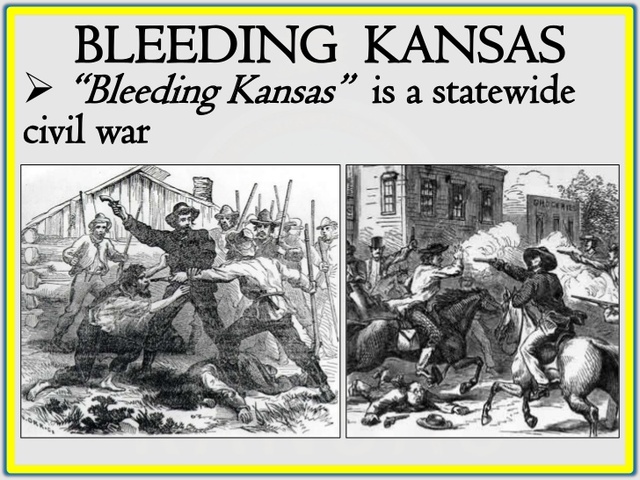
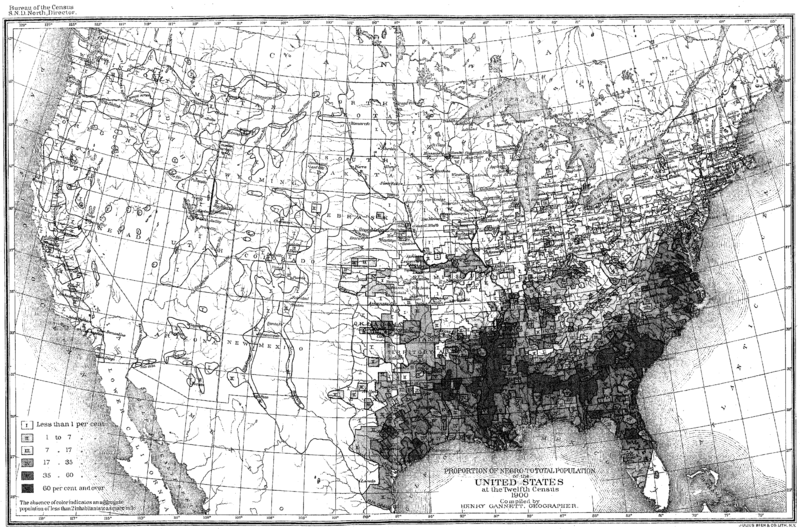
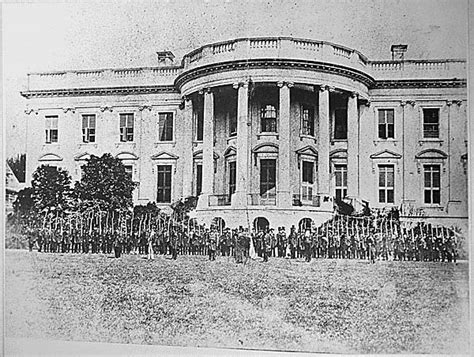


WAR OF 1812
Treaty of Ghent
December 24, 1814
ARTICLE THE TENTH.
Whereas the Traffic in Slaves is irreconcilable with the principles of humanity and Justice, and whereas both His Majesty and the United States are desirous of continuing their efforts to promote its entire abolition, it is hereby agreed that both the contracting parties shall use their best endeavours to accomplish so desirable an object.
Done in triplicate at Ghent the twenty fourth day of December one thousand eight hundred and fourteen.
GAMBIER. [Seal]
HENRY GOULBURN [Seal]
WILLIAM ADAMS [Seal]
JOHN QUINCY ADAMS [Seal]
J. A. BAYARD [Seal]
H. CLAY. [Seal]
JON. RUSSELL [Seal]
ALBERT GALLATIN [Seal]
https://www.battlefields.org/learn/primary-sources/treaty-ghent
The Fundamental Constitutions of Carolina: March 1, 1669
"Twenty-two. In every signiory, barony, and manor, all the leet-men shall be under the jurisdiction of the respective lords of the said signiory, barony, or manor, without appeal from him. Nor shall any leet-man or leet-woman have liberty to go off from the land of their particular lord and live anywhere else, without license obtained from their said lord, under hand and seal."
"Twenty-three. All the children of leet-men shall be leet-men, and so to all generations."
Our sovereign lord the King having, out of his royal grace and bounty, granted unto us the province of Carolina, with all the royalties, properties, jurisdictions, and privileges of a county palatine, as large and ample as the county palatine of Durham, with other great privileges; for the better settlement of the government of the said place, and establishing the interest of the lords proprietors with equality and without confusion; and that the government of this province may be made most agreeable to the monarchy under which we live and of which this province is a part; and that we may avoid erecting a numerous democracy, we, the lords and proprietors of the province aforesaid, have agreed to this following form of government, to be perpetually established amongst us, unto which we do oblige ourselves, our heirs and successors, In the most binding ways that can be devised.
One. The eldest of the lords proprietors shall be palatine; and, upon the decease of the palatine, the eldest of the seven surviving proprietors shall always succeed him.
Two. There shall be seven other chief offices erected, viz: the admirals, chamberlains, chancellors, constables, chief justices, high stewards, and treasurers; which places shall be enjoyed by none but the lords proprietors, to be assigned at first by lot, and, upon the vacancy of any one of the seven great offices, by death or otherwise, the eldest proprietor shall have his choice of the said place.
Three. The whole province shall be divided into counties; each county shall consist of eight signiories, eight baronies, and four precincts; each precinct shall consist of six colonies.
Four. Each signiory, barony, and colony shall consist of twelve thousand acres; the eight signiories being the share of the eight proprietors, and the eight baronies of the nobility; both which shares, being each of them one-fifth of the whole, are to be perpetually annexed, the one to the proprietors, the other to the hereditary nobility, leaving the colonies, being three-fifths, amongst the people; so that in setting out and planting the lands, the balance of the government may be preserved.
Five. At any time before the year one thousand seven hundred and one, any of the lords proprietors shall have power to relinquish, alienate, and dispose to any other person his proprietorship, and all the signiories, powers, and interest thereunto belonging, wholly anti entirely together, and not otherwise. But after the year one thousand seven hundred, those who are then lords proprietors shall not have power to alienate or make over their proprietorship, with the signiories and privileges thereunto belonging, or any part thereof, to any person whatsoever, otherwise than in section eighteen; but it shall all descend unto their heirs male, and for want of heirs male, it shall all descend on that landgrave or cazique of Carolina who is descended of the next heirs female of the proprietor; and, for want of such heirs, it shall descend on the next heir general; and, for want of such heirs, the remaining seven proprietors shall, upon the vacancy, choose a landgrave to succeed the deceased proprietors, who, being chosen by the majority of the seven surviving proprietors, he and his heirs. successively shall be proprietors, as fully to all intents and purposes as any of the rest.
Six. That the number of eight proprietors may be constantly kept, if, upon the vacancy of any proprietorship, the seven surviving proprietors shall not choose a landgrave to be a proprietor before the second biennial parliament after the vacancy, then the next biennial parliament but one, after such vacancy, shall have power to choose any landgrave to be a proprietor.
Seven. Whosoever, after the year one thousand seven hundred, either by inheritance or choice, shall succeed any proprietor in his proprietorship, and signories thereunto belonging; shall be obliged to take the name and arms of that proprietor whom he succeeds; which from thenceforth shall be the name and arms of his family and their posterity.
1 North Carolina Colonial records 187-205. Locke's Works [Eighth Edition] X. 175. Back
2 This form of government was framed by John Locke author of the Essay on the Human Understanding and amended by the Earl of Shaftesbury previously known as Anthony Ashley Cooper. It was only partially put into operation, and it was abrogated by the lords proprietors in April, 1693. Back
3 This article was not drawn up by Mr. Locke, but inserted by some of the chief of the proprietors, against his judgment; as Mr. Locke himself informed one of his friends, to whom he presented a copy of these constitutions.
https://avalon.law.yale.edu/17th_century/nc05.asp
Farewell Speech to the U.S. Congress
Jefferson Davis
January 21, 1861
"Had the Declaration announced that the negroes were free and equal, how was the prince to be arraigned for raising up insurrection among them?"
I rise, Mr. President, for the purpose of announcing to the Senate that I have satisfactory evidence that the State of Mississippi, by a solemn ordinance of her people, in convention assembled, has declared her separation from the United States.
Under these circumstances, of course, my functions are terminated here. It has seemed to me proper, however, that I should appear in the Senate to announce that fact to my associates, and I will say but very little more. The occasion does not invite me to go into argument; and my physical condition would not permit me to do so, if it were otherwise; and yet it seems to become me to say something on the part of the State 1 here represent on an occasion as solemn as this.
It is known to Senators who have served with me here that I have for many years advocated, as an essential attribute of State sovereignty, the right of a State to secede from the Union.
Therefore, if I had thought that Mississippi was acting without sufficient provocation, or without an existing necessity, I should still, under my theory of the Government, because of my allegiance to the State of which I am a citizen, have been bound by her action.
1, however, may be permitted to say that I do think she has justifiable cause, and I approve of her act.
I conferred with her people before that act was taken, counseled them then that, if the state of things which they apprehended should exist when their Convention met, they should take the action which they have now adopted.
I hope none who hear me will confound this expression of mine with the advocacy of the right of a State to remain in the Union, and to disregard its constitutional obligation by the nullification of the law. Such is not my theory.
Nullification and secession, so often confounded, are, indeed, antagonistic principles. Nullification is a remedy which it is sought to apply within the Union, against the agent of the States. It is only to be justified when the agent has violated his constitutional obligations, and a State, assuming to judge for itself, denies the right of the agent thus to act, and appeals to the other states of the Union for a decision; but, when the States themselves and when the people of the States have so acted as to convince us that they will not regard our constitutional rights, then, and then for the first time, arises the doctrine of secession in its practical application.
A great man who now reposes with his fathers, and who has often been arraigned for want of fealty to the Union, advocated the doctrine of nullification because it preserved the Union. It was because of his deep-seated attachment to the Union -- his determination to find some remedy for existing ills short of a severance of the ties which bound South Carolina to the other States -- that Mr. Calhoun advocated the doctrine of nullification, which he proclaimed to be peaceful, to be within the limits of State power, not to disturb the Union, but only to be a means of bringing the agent before the tribunal of the States for their judgment.
Secession belongs to a different class of remedies. It is to be justified upon the basis that the States are sovereign. There was a time when none denied it. I hope that time may come again when a better comprehension of the theory of our Government, and the inalienable rights of the people of the States, will prevent any one from denying that each State is a sovereign, and thus may reclaim the grants which it has made to any agent whomsoever.
I, therefore, say I concur in the action of the people of Mississippi, believing it to be necessary and proper, and should have been bound by their action if my belief had been otherwise; and this brings me to the important point which I wish, on this last occasion, to present to the Senate.
It is by this confounding of nullification and secession that the name of a great man whose ashes now mingle with his mother earth has been invoked to justify coercion against a seceded State. The phrase, "to execute the laws," was an expression which General Jackson applied to the case of a State refusing to obey the laws while yet a member of the Union.
That is not the case which is now presented. The laws are to be executed over the United States, and upon the people of the United States. They have no relation to any foreign country. It is a perversion of terms- at least, it is a great misapprehension of the case- which cites that expression for application to a State which has withdrawn from the Union.
You may make war on a foreign State. If it be the purpose of gentlemen, they may make war against a State which has withdrawn from the Union; but there are no laws of the United States to be executed within the limits of a seceded State.
A State, finding herself in the condition in which Mississippi has judged she is -- in which her safety requires that she should provide for the maintenance of her rights out of the Union -- surrenders all the benefits (and they are known to be many), deprives herself of the advantages (and they are known to be great), severs all the ties of affection (and they are close and enduring), which have bound her to the Union; and thus divesting herself of every benefit- taking upon herself every burden -- she claims to be exempt from any power to execute the laws of the United States within her limits.
I well remember an occasion when Massachusetts was arraigned before the bar of the Senate, and when the doctrine of coercion was rife, and to be applied against her, because of the rescue of a fugitive slave in Boston. My opinion then was the same that it is now. Not in a spirit of egotism, but to show that I am not influenced in my opinions because the case is my own, I refer to that time and that occasion as containing the opinion which I then entertained, and on which my present conduct is based. I then said that if Massachusetts- following her purpose through a stated line of conduct -- chose to take the last step, which separates her from the Union, it is her right to go, and I will neither vote one dollar nor one man to coerce her back; but I will say to her, Godspeed, in memory of the kind associations which once existed between her and the other States.
It has been a conviction of pressing necessity -- it has been a belief that we are to be deprived in the Union of the rights which our fathers bequeathed to us -- which has brought Mississippi to her present decision. She has heard proclaimed the theory that all men are created free and equal, and this made the basis of an attack upon her social institutions; and the sacred Declaration of Independence has been invoked to maintain the position of the equality of the races.
That Declaration is to be construed by the circumstances and purposes for which it was made.
The communities were declaring their independence; the people of those communities were asserting that no man was born -- to use the language of Mr. Jefferson -- booted and spurred, to ride over the rest of mankind; that men were created equal- meaning the men of the political community; that there was no divine right to rule; that no man inherited the right to govern; that there were no classes by which power and place descended to families; but that all stations were equally within the grasp of each member of the body politic.
These were the great principles they announced; these were the purposes for which they made their declaration; these were the ends to which their enunciation was directed. They had no reference to the slave; else, how happened it that among the items of arraignment against George III was that he endeavored to do just what the North has been endeavoring of late to do, to stir up insurrection among our slaves?
Had the Declaration announced that the negroes were free and equal, how was the prince to be arraigned for raising up insurrection among them?
And how was this to be enumerated among the high crimes which caused the colonies to sever their connection with the mother-country?
When our Constitution was formed, the same idea was rendered more palpable; for there we find provision made for that very class of persons as property; they were not put upon the equality of footing with white men -- not even upon that of paupers and convicts; but, so far as representation was concerned, were discriminated against as a lower caste, only to be represented in the numerical proportion of three-fifths. So stands the compact which binds us together.
Then, Senators, we recur to the principles upon which our Government was founded; and when you deny them, and when you deny us the right to withdraw from a Government which, thus perverted, threatens to be destructive of our rights, we but tread in the path of our fathers when we proclaim our independence and take the hazard.
This is done, not in hostility to others, not to injure any section of the country, not even for our own pecuniary benefit, but from the high and solemn motive of defending and protecting the rights we inherited, and which it is our duty to transmit unshorn to our children.
I find in myself perhaps a type of the general feeling of my constituents towards yours. I am sure I feel no hostility toward you, Senators from the North.
I am sure there is not one of you, whatever sharp discussion there may have been between us, to whom I cannot now say, in the presence of my God, I wish you well; and such, I feel, is the feeling of the people whom I represent toward those whom you represent. I, therefore, feel that I but express their desire when say I hope, and they hope, for peaceable relations with you, though we must part.
They may be mutually beneficial to us in the future, as they have been in the past, if you so will it. The reverse may bring disaster on every portion of the country, and, if you will have it thus, we will invoke the God of our fathers, who delivered them from the power of the lion, to protect us from the ravages of the bear; and thus, putting our trust in God and in our firm hearts and strong arms, we will vindicate the right as best we may.
In the course of my service here, associated at different times with a variety of Senators, I see now around me some with whom I have served long; there have been points of collision, but, whatever offense there has been to me, I leave here. I carry with me no hostile remembrance. Whatever offense I have given which has not been redressed, or for which satisfaction has not been demanded, I have, Senators, in this hour of our parting, to offer you my apology for any pain which, in the heat of discussion, I have inflicted.
I go hence unencumbered by the remembrance of any injury received, and having discharged the duty of making the only reparation in my power for any injury offered.
Mr. President and Senators, having made the announcement which the occasion seemed to me to require, it only remains for me to bid you a final adieu.
https://www.knowsouthernhistory.net/Speeches/jeff_davis_farewell.html
In the middle of watching this one. Can I repost it, and here?
https://sovren.media/video/fugitive-slave-act-of-1850-one-of-the-worst-ever-3752.html

Sept 18, 1850 - Pres. Millard Fillmore signed the 2nd Federal Fugitive Slave Act into law. An attempt to implement the Fugitive Slave Clause of the Constitution, the act, at best, had serious constitutional issues. In response, as had been done under the previous act, states passed Personal Liberty Laws which nullified the federal act in practice and effect. Path to Liberty: September 18, 2023
sovren.media
Senator David R. Atchison speech to proslavery forces - May 21, 1856
US Missouri Senator Atchison boasted early on of the joy of killing to spread slavery and get paid for it by the government as soldiers.
Missouri Senator David Rice Atchison’s speech to Southern men with the blessing of President Pierce and Secretary of War Jefferson Davis calling for war on the free people in Kansas who oppose slavery just before they went to Lawrence, KS to kill their opposition in “Bloody Kansas” to begin the civil war while Lincoln was a private citizen four years before he became President.
".. the resolves of the entire South, and of the present Administration, that is, to carry the war into the heart of the country, (cheers.) never to slacken or stop until every spark of free-state, free-speech, free-niggers, or free in any shape is quenched out of Kansaz! (Long shouting & cheering.)”
"under the authority of the administration of the U.S.! - and for it you will be amply paid as U.S. troops, besides having an opportunity of benefitting your wardrobes from the private dwellings of those infernal nigger-stealers."
Gentlemen, Officers & Soldiers! - (Yells) This is the most glorious day of my life!
This is the day I am a border ruffian! (Yells.)
The U.S. Marshall has just given you his orders and has kindly invited me to address you. For this invitation, coming from no less than U.S. authority, I thank him most sincerely, and now allow me, in true border-ruffian style, to extend to you the right hand of fellowship. (Cheers.)
Men of the South, I greet you as border-ruffian brothers. (Repeated yells & waving of hats.) Though I have seen more years than most of you, I am yet young in the same glorious cause that has made you leave your homes in the South. Boys I am one of your number today (Yells.) and today you have a glorious duty to perform, today you will earn laurels that will ever show you to have been true sons of the noble South! (Cheers.)
You have endured many hardships, have suffered many privations on your trips, but for this you will be more than compensated by the work laid out by the Marshal, - and what you know is to be done as the programme of the day. Now Boys, let your work be well done! (Cheers.)
Faint not as you approach the city of Lawrence, but remembering your mission act with true Southern heroism, & at the word, Spring like your bloodhounds at home upon that d--d accursed abolition hole; break through every thing that may oppose your never flinching courage! - (Yells.) Yess, ruffians, draw your revolvers & bowie knives, & cool them in the heart's blood of all those d--d dogs, that dare defend that d--d breathing hole of hell. (Yells.)
Tear down their boasted Free State Hotel, and if those Hellish lying free-soilers have left no port holes in it, with your unerring cannon make some, Yes, riddle it till it shall fall to the ground. Throw into the Kanzas their printing presses, & let's see if any more free speeches will be issued from them!
Boys, do the Marshall's full bidding! - Do the sheriff's entire command! - (Yells.) for today Mr. Jones is not only Sheriff, but deputy Marshall, so that whatever he commands will be right, and under the authority of the administration of the U.S.! - and for it you will be amply paid as U.S. troops, besides having an opportunity of benefitting your wardrobes from the private dwellings of those infernal nigger-stealers. (Cheers.)
Courage for a few hours & the victory is ours, falter & all is lost! - Are you determined? Will every one of you swear to bathe your steel in the black blood of some of those black sons of ---- (cries & yells of yes, yes.) Yes, I know you will, the South has always proved itself ready for honorable fight, & you, who are noble sons of noble sires, I know you will never fail, but will burn, sack & destroy, until every vistage of these Norther Abolishionists is wiped out.
Men of the South & Missouri, I am Proud of this day! I have received office and honor before; - I have occupied the vice-presidents place in the greatest republic the light of God's sun ever shone upon; - but, ruffian brothers, (yells.) that glory, that honor was nothing, it was an Empty buable, compared with the solid grandeur & magnificent glory of this momentous occasion!
Here, on this beautiful prairie-bluff, with naught but the canopy of heaven for my covering, with my splendid Arabian charger for my seat, to whose well tried fleetness I may yet have to depend for my life, unless this days work shall annihilate from our western world these hellish Emigrant Aid paupers, whose bellies are filled with beggars food, & whose houses are stored with "Beecher's Rifles (Bibbs!) (Yells prolonged.)
I say, here, with the cool breeze of the morning blowing fresh around my head, with the U.S. Marshall at my left, - completely surrounded by my younger brothers, (terrible enthusiasm.) each supporting a U.S. rifle, and on the manly countenance of each, plainly seen, his high & fixed determination to carry our to the letter the lofty & glorious resolves that have brought him here - the resolves of the entire South, and of the present Administration, that is, to carry the war into the heart of the country, (cheers.) never to slacken or stop until every spark of free-state, free-speech, free-niggers, or free in any shape is quenched out of Kansaz! (Long shouting & cheering.)
And what is also pleasing beyond my powers of description, is the fact that, having above me, - as I speak the honest sentiments of my heart and the sentiments of the administration & the blessed pro-slavery party throughout this great nation, - is the only flag we recognize, and the only one under whose folds we will march into Lawrence, the only one under which these d--d Abolishionist prisoners were arrested - who are now outside yonder tent endeavoring to hear me, which I care not a d--n if they do! (Cheers.)
Yes, these G--d d--d sons of d--d puritan stock will learn their fate, and they may go home and tell their cowardly friends what I say! - I care not for them! - I defy & d--n them all to H--l. (roars & yells.)
Yes, that large red flag denotes our purpose to press the matter even to blood, - the large lone white star in the centre denotes the purity of our purpose, & the words "Southern Rights" above it clearly indicate the rightiousness of our principles.
I say under all these circumstances I am now enjoying the proudest moments of my life, - but I will detain you no longer. (Cries of go on, go on.) No boys! - I connot stay your spirit of patriotism, I cannot even stay my own; - our precious time is wasting. - No hasten to work, - follow your worthy and immediate leader, Col. Stringfellow! (Yells.) he will lead you on to a glorious victory, & I will be threre to support all your acts & assist as best I may in all your acts, & assist completing the overthrow of that hellish party, & in crushing out the last sign of d--d abolishionism in the territory of Kanzas. - (Three times Yells for Atchison.)
https://southernsecrets.wordpress.com
https://www.kansasmemory.org/item/90797
The Voice of Kansas, Let the South Respond
The Law and Order Party made this appeal to southerners to provide support for the proslavery cause in Kansas Territory, in the form of emigration, financial donations, and/or moral support. The main portion of this pamphlet was written by David Atchison, William H. Russell, Joseph C. Anderson, A. G. Boone, B. J. Stringfellow, and J. Buford. A printed note at the end of the text was addressed to Col Jefferson Buford, and encouraged him to go to the South to solicit support for the proslavery advocates in Western Missouri and Kansas Territory.


